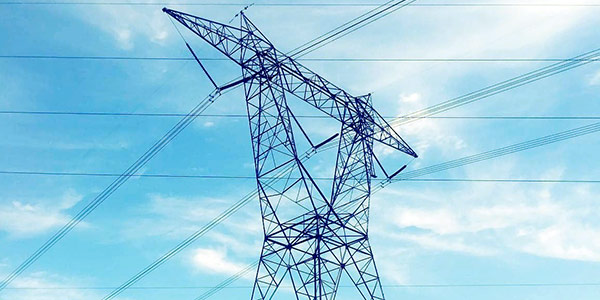By Tom Kleckner
FERC last week denied SPP’s request for a rehearing of the commission’s 2019 order that the RTO provide refunds of credit payment obligations (ER16-1341).
SPP asked the commission to stay the refund directive and establish settlement judge procedures. The February 2019 order on remand reversed a waiver FERC had previously issued on Attachment Z2 of the SPP Tariff. (See FERC Reverses Waiver on SPP’s Z2 Obligations.)
The commission found the RTO failed to meet the first criterion to receive a stay: that it would suffer “irreparable harm” without it.
FERC questioned whether settlement discussions “would be productive at this point,” noting that SPP in 2016 sought a retroactive waiver of its Tariff, citing the complexity of invoicing transmission service customers for Attachment Z2 credit payment obligations for the 2008-2016 time period.
“Given the length of time that has elapsed since SPP’s initial waiver request, parties have had considerable time to engage in settlement discussions or consider negotiation through the stakeholder process,” the commission wrote. “However, at no point in the lengthy history of this proceeding have parties on opposite sides of the issue supported settlement at the same time.”
Under Attachment Z2 of SPP’s Tariff, sponsors that fund network upgrades can be reimbursed with revenue credits through transmission service requests, generator interconnections or upgrades that could not have been honored “but for” the upgrade.
Oklahoma Gas & Electric, Western Farmers Electric Cooperative, the city of Prescott, Ark., and a coalition of generation developers (EDF Renewables, Enel Green Power NA, NextEra Energy Resources and Southern Power) supported SPP’s position.
Kansas Electric Power Cooperative and Xcel Energy Services intervened against SPP, arguing that the RTO had not met FERC’s “high” standard for granting a stay.
The commission also rejected a separate rehearing request filed in April 2019 by SPP, OG&E and Flat Ridge 2 Wind Energy, a 470-MW wind facility in Kansas jointly owned by BP Wind Energy and AEP Renewables (ER16-1341-004). FERC did grant SPP’s request for clarification of the refund directive.
The commission affirmed its finding in the remand order, saying the filed rate doctrine and a rule against retroactive ratemaking prohibit the waiver. It also affirmed its determination that refunds are the appropriate remedy and granted SPP’s clarification request that any interest owed on the refunds should be collected from entities that received settlement payments from SPP — not the RTO.
FERC in January rejected SPP’s request to eliminate Z2 revenue credits for sponsored transmission upgrades. The grid operator hopes to replace the troublesome Z2 credits with incremental long-term congestion rights. (See FERC Order Keeps Z2, Aids EDF’s Sponsored Project.)
Co-ops Rebuffed in Settlement Rehearing Requests
The commission also denied rehearing requests of a pair of 2019 orders rejecting contested settlements filed by SPP regarding the annual transmission revenue requirements (ATRRs) for two cooperatives.
FERC rejected Corn Belt Electric Cooperative’s rehearing request but did grant, in part, Interstate Power and Light’s (IPL) petition for clarification of the order (ER15-2028).
Similarly, the commission turned down Northwest Iowa Power Cooperative’s (NIPCO) rehearing request (ER15-2115).
FERC last year rejected the contested settlements, saying that because they were contested, they couldn’t be approved under the commission’s guidelines and precedent set by a 1999 case involving Trailblazer Pipeline. Both proceedings were remanded to the chief administrative law judge to resume hearings. (See FERC Rejects SPP Settlements over ATRR.)
The Corn Belt settlement centered on SPP’s Tariff revisions to accommodate the co-op’s ATRR as an incoming transmission-owning member. At issue were three grandfathered agreements (GFAs) providing in-kind transmission service to the settlement’s parties.
The cooperative said it was not challenging FERC’s decision to set the case for hearing but argued against the framing of issues and the hearing’s scope. Corn Belt said that when TOs join regional grids, even indirect modifications to GFAs can trigger a threshold analysis under the Mobile–Sierra Doctrine, which holds that negotiated, fixed-rate contracts are to be presumed just and reasonable under the Federal Power Act and cannot be revised by FERC without a finding that the public interest requires modification.
The commission disagreed with Corn Belt’s argument that a Mobile-Sierra analysis is required, saying it is not relevant “when [FERC] action merely affects a contract.”
“The commission is addressing SPP’s rate treatment of the service underlying the GFA, not whether the GFA itself should be modified,” the commission wrote.
FERC granted IPL’s request to clarify that the settlement order does not determine whether the rights granted in its GFA constitute transmission service. The commission said it made only preliminary findings that GFA loads were served with firm transmission service and that no rights or obligations were determined.
NIPCO used many of the same arguments in challenging the framing of issues and the hearing’s scope, rather than FERC’s decision to set its case for hearing. As in the Corn Belt case, SPP filed Tariff revisions to allow for the co-op’s ATRR when it joined the RTO as a transmission-owning member, drawing objections from members who said the rate treatment of two NIPCO GFAs would essentially subsidize transmission loads and shift the cost to transmission owners.
The commission responded that a Mobile-Sierra analysis is not relevant when its action merely affects a contract, saying it addressed SPP’s rate treatment of the GFA’s underlying service, not whether the GFA itself should be modified.






